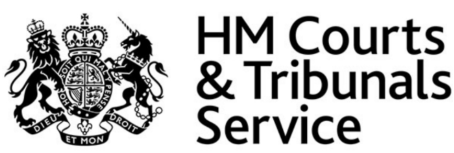If you have received a parking charge we would advise you to pay within 14 days, to benefit from the reduced charge.
If you believe the parking charge was issued in error, you can appeal through this website by clicking here. If you do this within two weeks of the issue date we’ll freeze the charge at the lower rate while we consider your case.
Once a final decision has been made you will receive a letter from us notifying you of the decision. If your appeal was unsuccessful, we will give you another 14 days to pay the charge at the lower rate.
DON’T JUST IGNORE THE PARKING CHARGE, BECAUSE YOU CAN BE SURE WE WON’T.
If we don’t receive payment from you we will pass your details on to a registered debt recovery agency, and you may also become liable for the costs they incur as a result.
If you still refuse to pay we may commence court proceedings against you.

Amateur lawyers posting on internet forums often advise people to ignore parking charges, claiming that they’re not enforceable by law. This is bad advice.
In fact Parking Companies take people to court every month and in most cases the judge finds in our favour, on the basis that:
In this case you would be issued with a county court judgement (CCJ) detailing the amount you need to pay us. Taking into account the original charge plus interest, legal expenses and costs, this may work out in excess of £300.
A CCJ could have a negative effect on your credit rating. Unless you pay it within one month and then pay an additional fee for the details to be removed from your records, the CCJ will remain on your credit file for six years.
The charge is unfair
When we take them to court, people often claim that they decided not to pay the parking charge as they felt it was unfair. However, we have never had a case where the judge has accepted this argument.
By parking at the site you indicated that you agreed to our terms, including the charges we’re entitled to make if you park in breach of the rules.
In the recent landmark case of Parking Eye Ltd v Barry Beavis [2015] EWCA Civ 402, the Court of Appeal unambiguously and unanimously approved the issuance of private parking charges by private operators. The Court made reference to private parking charges being justified commercially, socially and benefiting the community as a whole. Creating a new judicial test, the Court assessed the validity of the issued charge by deciding whether it was ‘extravagant and unconscionable’, which sets a high bar for parking charges to be deemed unenforceable. In the case, an £85.00 charge issued by a private parking company was considered fully enforceable.
I wasn’t driving the car
This is a very common defence but a risky one. In many cases we’ll have photographic evidence to prove that you were the person who parked the car on-site.
If you state in court that you weren’t driving the car but are found to be lying, this could be considered as perjury. This is defined as the deliberate, willful giving of false, misleading, or incomplete testimony under oath, and is a serious criminal offence.